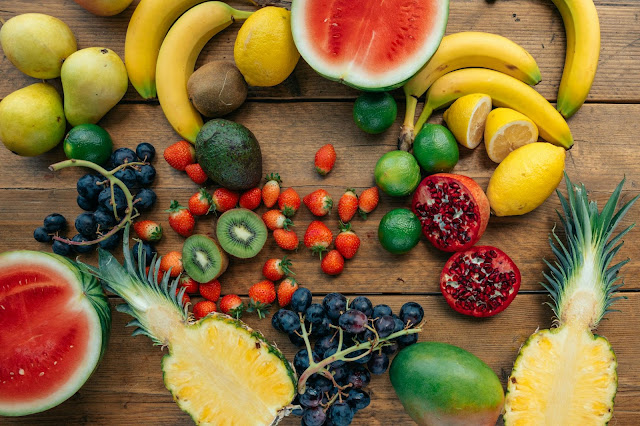No resulting nutrition? Answering this question is not easy, because every fruit we eat contains some nutrients. But some fruits are so rich in nutrients that they have been dubbed super foods. Regular consumption of these nutrient-rich foods improves the overall health of the body and keeps diseases at bay. The report names the 10 healthiest fruits.
* Pitch
You know bananas are high in potassium, but two small peaches also provide 250 milligrams of the essential mineral. This mineral improves nerve and muscle health, according to the US National Institutes of Health. According to research published in the International Journal of Molecular Science, peach peels are rich in antioxidants. Peaches are a healthy way to add sweetness to the diet of those trying to keep their weight under control.
* Pineapple
This topical fruit with a sweet and pungent taste is rich in bromelain. Bromelain is an anti-inflammatory enzyme that has been shown to reduce the risk of heart attack and stroke, according to a research report published in Biomedical Reports.
* Grapes
Purple grapes are the oldest and most abundant healthy fruit in the world. Grapes have a positive effect on blood lipids, reduce inflammation and lower blood pressure, according to research published in 2015 in the Journal of the Science of Food and Agriculture. Grapes are also a rich source of potassium, which helps prevent muscle cramps or painful muscle contractions.
* Kiwi
Crunchy or fibrous peel will give you a lot of vitamin C. Vitamin C is an antioxidant that protects against cancer and improves eye health. Kiwi fruit is very low in calories, but relatively high in fiber – making it an ideal fruit for those looking to lose weight.
* Mango
Mangoes are growing in popularity among nutritionists, as the juicy fruit contains high levels of beta-carotene, which your body converts into vitamin A to strengthen the immune system and keep your eyesight sharp. In addition, one bowl of mango provides 60 mg of vitamin C, which is more than 50 percent of an adult's daily requirement of vitamin C.
* Apple
A medium-sized apple contains only 80 calories, but it's high in quercetin—a powerful antioxidant that prevents degeneration of brain cells (degeneration of brain cells can lead to Alzheimer's disease). According to research published in the journal Hypertension, blood pressure can be reduced by eating apples. Besides, apple fiber has been linked to improving cholesterol levels. Don't forget to throw away the apple peel, as the peel contains disease-fighting compounds, such as the flavonoids in the apple peel, which may lower the risk of heart disease.
* Pomegranate
Pomegranate juice contains a mega dose of antioxidants. This fruit is also a good source of potassium, which maintains energy and keeps high blood pressure under control. Recent research suggests that daily consumption of pomegranate juice may benefit cardiovascular health and reduce inflammation. But talk to your doctor before consuming pomegranate juice regularly, as it can interfere with prescription medications and reduce their effectiveness.
* Mosambi
A well-known source of vitamin C is oranges, but moss is also a rich source of this vitamin. Half of a watermelon provides about 50 percent of an adult's daily requirement of vitamin C. This fruit also contains high levels of fiber, vitamin A and potassium. Mosambis vitamin C is associated with collagen production, so this fruit can repair damaged or oily skin and hair.
* Bananas
Bananas are ideal as a snack. Bananas are high in potassium and fiber, which can keep your body energized for longer. It is a healthy snack as it does not contain fat or salt. Bananas can be stored in the refrigerator to delay spoilage for three to five days, which will keep the edible part intact even if the skin turns brown.
* Blueberry
Blueberries have long been considered a super food. This sweet fruit is small but powerful, containing large amounts of disease-fighting antioxidants and vitamin C. It also contains pigments called anthocyanins, which research suggests may boost brainpower. One study found that the group of people who ate the most blueberries had a lower rate of developing age-related macular degeneration. According to a research report published in the International Journal of Molecular Science in 2018, age-related macular degeneration is the main cause of blindness in elderly people.







